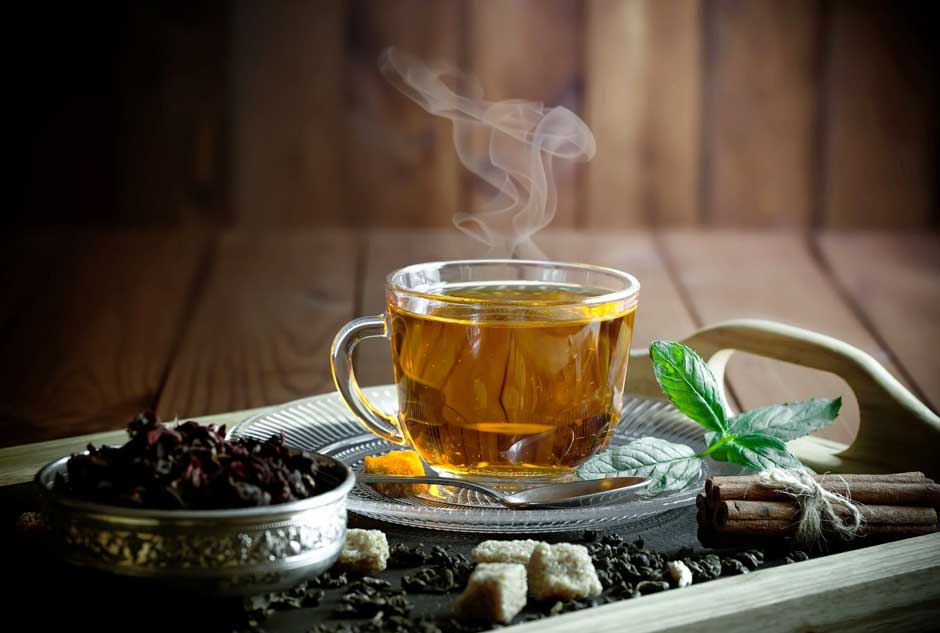Organic Tea: What Makes It Different from Other Hot Beverages?

For hundreds of years, tea has been consumed for health, taste, and cultural reasons. But in recent times, we’ve got away from how tea would have traditionally been prepared and consumed. Most of what you find on the supermarket shelves has been tainted by pesticides and artificial additives. Increasingly, consumers are consciously avoiding these things, leading to organic tea becoming a global trend. Today, we’re answering the question of what makes it different.
Farming and Cultivation
Perhaps the biggest difference between organic tea and other hot beverages is how it’s grown. Generally, to qualify as organic, tea plants must be grown without chemical pesticides or herbicides. They must also use an organic fertiliser as opposed to a synthetic one.
In addition to removing any concerns about trace amounts of these chemicals entering your body, organic farming is much better for the environment. Intensive chemical use over an extended period can degrade land. Avoiding it ensures the soil remains fertile and protects biodiversity in the surrounding areas.
Absence of Additives
Many tea products found on the shelves of modern shops have artificial flavours, preservatives, and synthetic chemicals added. This is especially true of powdered or “instant” tea products. Sometimes, the purity of tea is tainted not by additives but by the method of infusion. For example, teabags have been shown to release microplastics when steeped in hot water.
Organic teas offer a cleaner alternative, where the flavours come directly from the leaves and other natural ingredients. It’s often sold in a loose-leaf form, avoiding the teabag problem. Instead, people steep the leaves in water using a metal strainer.
Flavour and Aroma
Since additives cannot be used to balance the flavours of the tea, the effect of the soil and climate where the tea was grown is a lot more present in the taste. In this way, organic tea is similar to wine, and many enthusiasts treat it similarly. Rather than something to be brewed and consumed quickly, it becomes something to be savoured. They choose brands based on the locations of their farms.
So, where is organic tea grown? The answer really depends on the type of tea. Organic moringa tea is predominantly grown in South Asia, while organic matcha green tea comes from Japan. These are some of the most popular types, but there are delicious varieties all over the Asian continent. Organic tea can also be found in Thailand (where it is known locally as ชาออร์แกนิค), Indonesia, the Philippines and more.
Health Benefits
If there is one drink that is synonymous with health, it’s green tea. But black tea has benefits too, along with other varieties. The main way tea boosts your health is by being a source of antioxidants, catechins, and polyphenols. These help fight compounds called free radicals in your body, which have been linked to many kinds of illnesses.
Since organic teas undergo minimal processing and don’t contain pesticides or additives, they deliver these health benefits with virtually no downside. One precaution to take, however, is not to drink them too hot. Consuming excessively hot beverages (60c or more) has been linked to an increased risk of cancer in the throat.
Caffeine Levels and Energy
Not all teas, organic or otherwise, contain caffeine. There are many herbal teas which contain none at all. However, popular tea varieties like matcha, black, white and oolong are all mild stimulants. Some people prefer them over coffee, as the lower dose of caffeine takes longer to kick in, providing a steady increase in alertness over a long time instead of a sudden one.
Something else many people notice is that the difference between organic teas and regular teas lies in the quality of the energy boost, not the intensity. They have comparable amounts of caffeine, but people often report that organic tea makes them feel less jittery. It delivers a more relaxed alertness.
Conclusion
These have been the main ways in which organic tea distinguishes itself from other hot drinks. It’s purer and healthier with more subtle flavours to explore, yet still delivers the energy boost that tea drinkers require. It’s also more sustainable than intensively farmed teas, and there are many varieties and flavours to explore. From Thai herb infusions to the global phenomenon that is matcha, there’s bound to be an organic tea out there for you.


